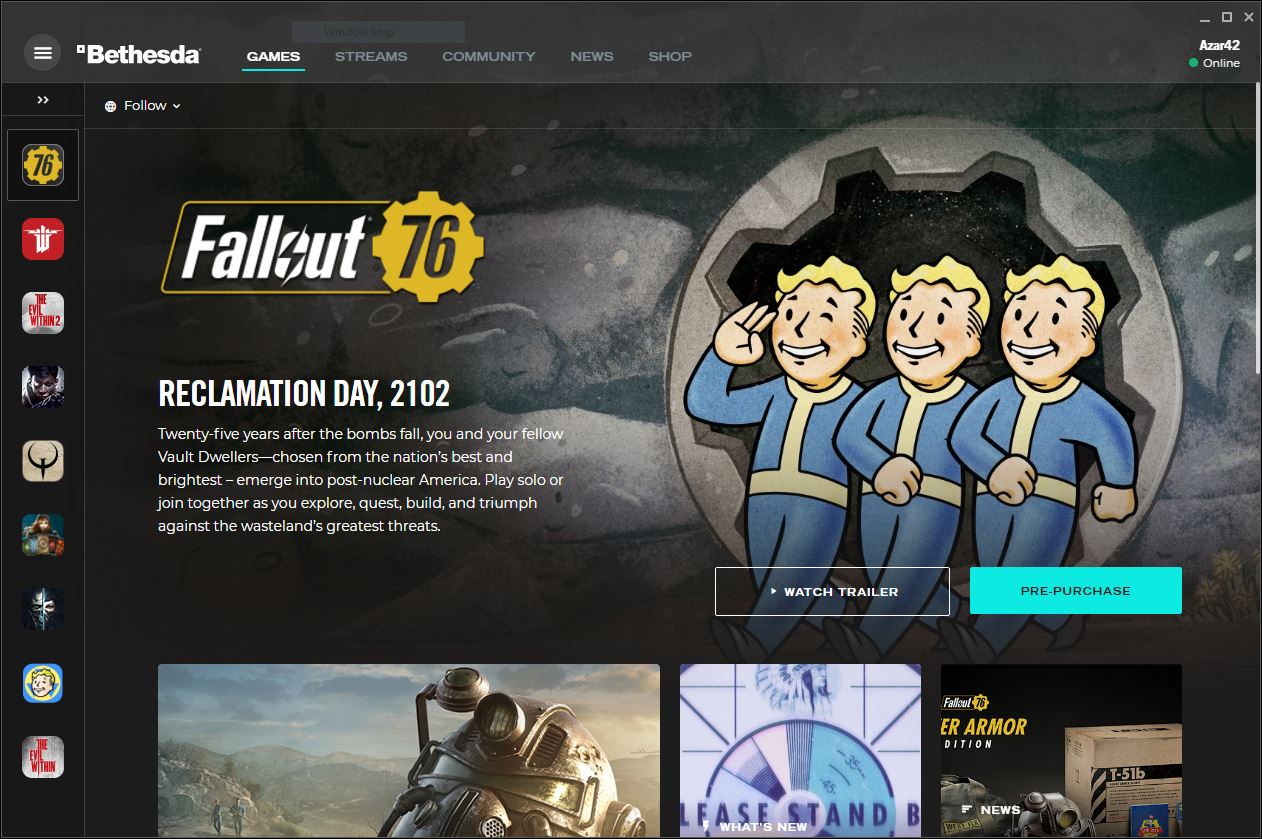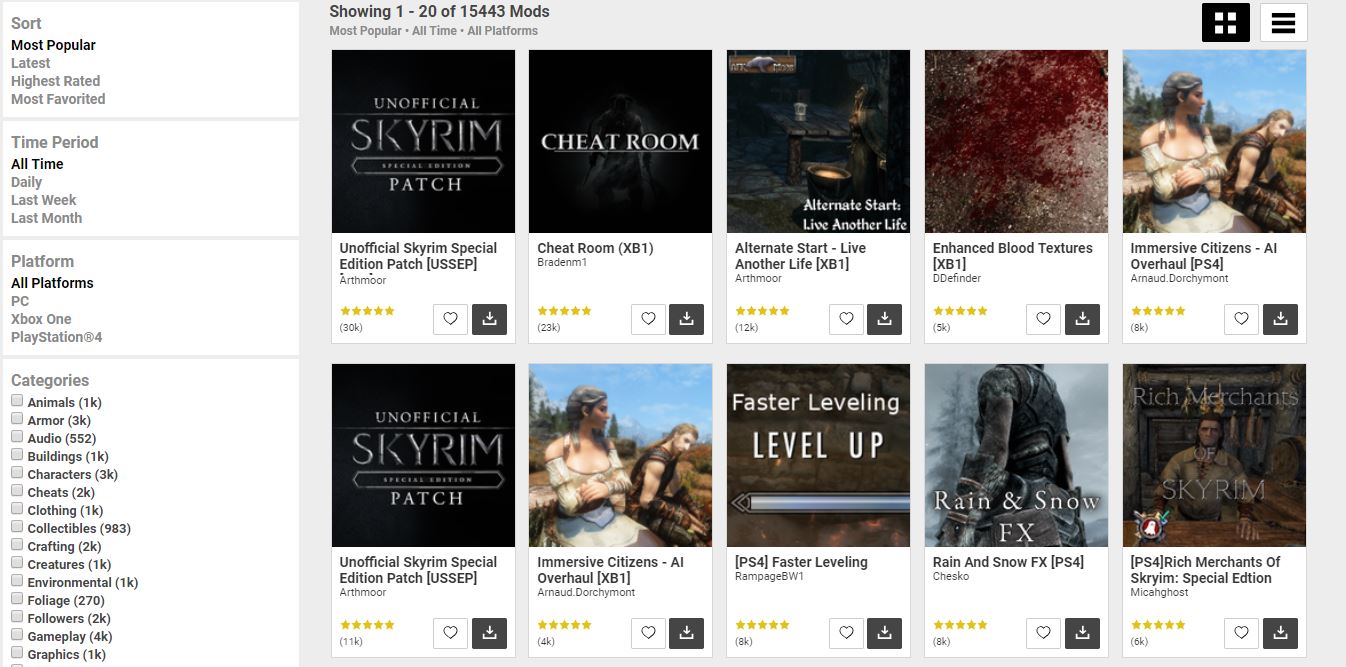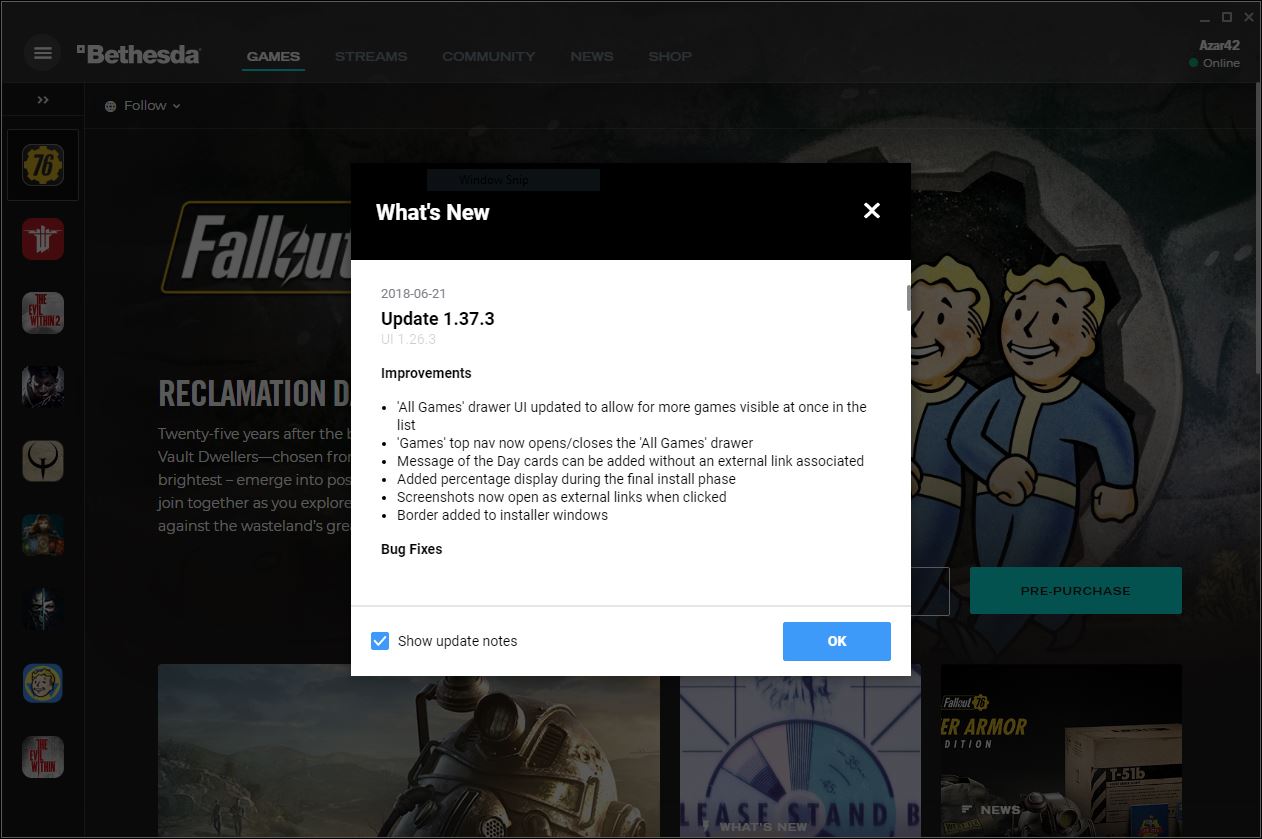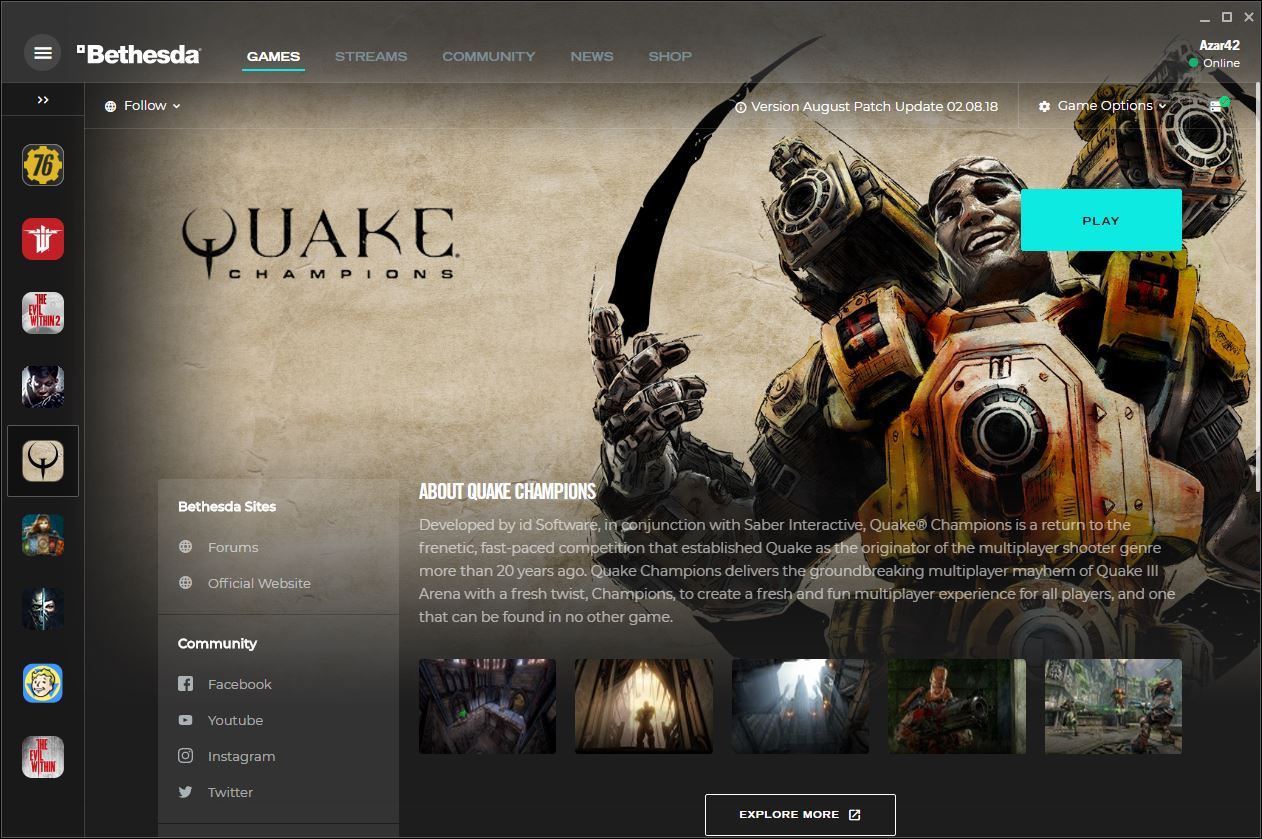Fallout 76 has a lot to prove as it leaves Steam behind
Standalone launchers can work, but Bethesda has to rival Steam on modding, network infrastructure, and more.

Fallout 76, Bethesda's new multiplayer Fallout spin-off, will not launch on Steam in September. It's going to be the first big exclusive on the Bethesda Launcher, a platform like EA's Origin or Ubisoft's Uplay. It may never be available on Steam, though at this point we can't say for sure; Fallout Shelter spent the better part of a year on the Bethesda launcher before eventually being released on Steam. But that was a mobile port, and this is a big, widely anticipated Fallout game, and some people are upset they won't be able to buy it on Steam. I get it: I've definitely grumbled into my keyboard as I downloaded yet another launcher for a single game, or tried to remember the password to my Origin account in the years that passed between playing Battlefield games.
The reason Bethesda is skipping Steam in favor of its own launcher is obvious: full control, and a full share of the profits. Like Apple and almost all other digital marketplaces, Valve takes a 30 percent cut. But Bethesda has a lot to prove with Fallout 76 if we're to believe it's the right decision for players, too.
Playing together has to be painless
Steam is full of convenient features, but I don't know if there's a better one than right-clicking on a friend's profile and hitting "Join game." Games that integrate the Steamworks network APIs make it so easy to party up with friends, it's hard to believe we used to manually type in IP addresses or set up spoofed Hamachi LANs to play together online. Fallout 76 is a multiplayer game, and it's already asking us to replicate yet another friends list to play together. If getting into games together takes a single step more work than it does on Steam, it's going to feel like an unnecessary annoyance.
Network infrastructure is seriously complex
This is Bethesda Game Studios' first big online game, and launches for these types of games often don't go well even for seasoned developers. Even Blizzard's Diablo 3 had an infamously error-filled launch. Server stability, multi-region support, performance and tickrate, lobbies and parties… there's a ton to get right here, and Steamworks includes a lot of the tools developers need to do this stuff right. Of course, tons of developers build this stuff on their own and don't rely on Steam. But it's a crucial factor in Fallout 76's success as a multiplayer game, and one resting entirely on Bethesda's shoulders.
And as much as we love Bethesda games, they tend to be huge, ambitious, and filled with bugs. That won't get a pass in an online game as easily as it does in a singleplayer one. Fallout 76 isn't going to have a long beta—it starts in October, and the game is out on November 14—but hopefully that testing will give Bethesda enough time to fix any serious issues.
Anti-cheat is essential
No one cares if you cheat in Skyrim or Fallout 4. While you're over there giving yourself infinite ammo, some modder is over here turning dragons into Thomas the Tank Engine. It's cool: play however you want. Unless you're in an online game, and cheating means ruining the experience for other players. This is a problem Bethesda's never had to deal with before, and it won't have Steam's VAC anti-cheat as an option.
Thankfully there are lots of other anti-cheat services out there that Bethesda can turn to, and that's more likely than Fallout 76 having something developed in-house. Either way, Bethesda will have to devote resources to updating its anti-cheat tools as new exploits are discovered, and have systems in place to both patch those exploits and ban players who abuse them.
Keep up to date with the most important stories and the best deals, as picked by the PC Gamer team.

Bethesda's mod tools need to be better than Steam Workshop
Steam Workshop is a convenient way to install mods. For the most part, it's an 'it just works' solution for any game that has official support. For plenty of other games, though, we have to turn to outside tools like the Nexus Mod Manager, or deal with the headache of figuring out mod compatibility ourselves. Bethesda has said that it's committed to mod support in Fallout 76, but that it won't arrive until after launch. If Steam Workshop isn't on the table, then Bethesda needs to offer something better.
There's a lot of potential here. Proper mod support through the Bethesda launcher could be a best of both worlds situation, offering mod creators cross-platform support with consoles, and even the potential to do paid modding right, with the easy installation and freedom of a Workshop-like interface. It could let Bethesda create a snazzy new interface with great search and browsing tools. It could make mods feel like an integral part of Fallout 76, built right into its launcher rather than a tab on the Steam community hub.
It's also easy to see the potential pitfalls. Maybe Bethesda decides to personally approve every mod, or only allow modding through something like the Creation Club, greatly limiting the types of mods that can be uploaded. That wouldn't be shocking for a multiplayer game, but the interface for those mods, at least, needs to impress.

More control could mean faster or better updating
One of Steam's major advantages over consoles is how easy its backend makes patching games. This was especially true in the Xbox 360 era, when patching a game was a slow and expensive process for developers. Consoles have gotten better, but Steam still makes it really easy to update games, and lots of developers have praised its backend tools. Theoretically, one of the big advantages to Bethesda using its own launcher is complete control. If the dev team wants to build tools to update Fallout 76 in a certain way, they can. That could alleviate headaches for them, make Fallout 76 patching faster, or even mean quick, nimble improvements to the Bethesda launcher itself.
Over the years Valve has made some major additions to Steam like Big Picture and the recent chat client, but those updates are slow and pretty rare. Bethesda could potentially rapidly iterate on its launcher based on user feedback, but it also likely doesn't have a development staff nearly as large as Steam's.
Hopefully the custom launcher also lets Bethesda easily run a test realm to vet patches with a smaller playerbase before they go live. Based on a beta menu option that's in the interface for installed games now, that's a feature that already exists.

The Bethesda client needs to be a good launcher, not just a good store
Right now, Bethesda's launcher seems to be designed more as a pretty interface to purchase Bethesda's games than a way of managing them. In most launchers, there's a clear distinction between your library view and the store view. But in Bethesda's client, as it's currently designed, there's no library view. There are icons for all the major games along the side, whether you've purchased them or not. There's no way to sort between what you own and what you don't. It's not a disastrous interface, but it's annoying that there's no option to default to a view of your library—just the games you actually own, or even just the ones you have installed. Right now, the client feels more like a store than anything.

Wes has been covering games and hardware for more than 10 years, first at tech sites like The Wirecutter and Tested before joining the PC Gamer team in 2014. Wes plays a little bit of everything, but he'll always jump at the chance to cover emulation and Japanese games.
When he's not obsessively optimizing and re-optimizing a tangle of conveyor belts in Satisfactory (it's really becoming a problem), he's probably playing a 20-year-old Final Fantasy or some opaque ASCII roguelike. With a focus on writing and editing features, he seeks out personal stories and in-depth histories from the corners of PC gaming and its niche communities. 50% pizza by volume (deep dish, to be specific).

